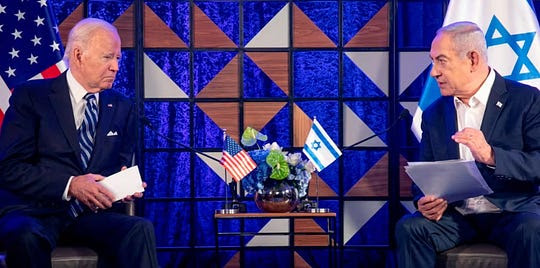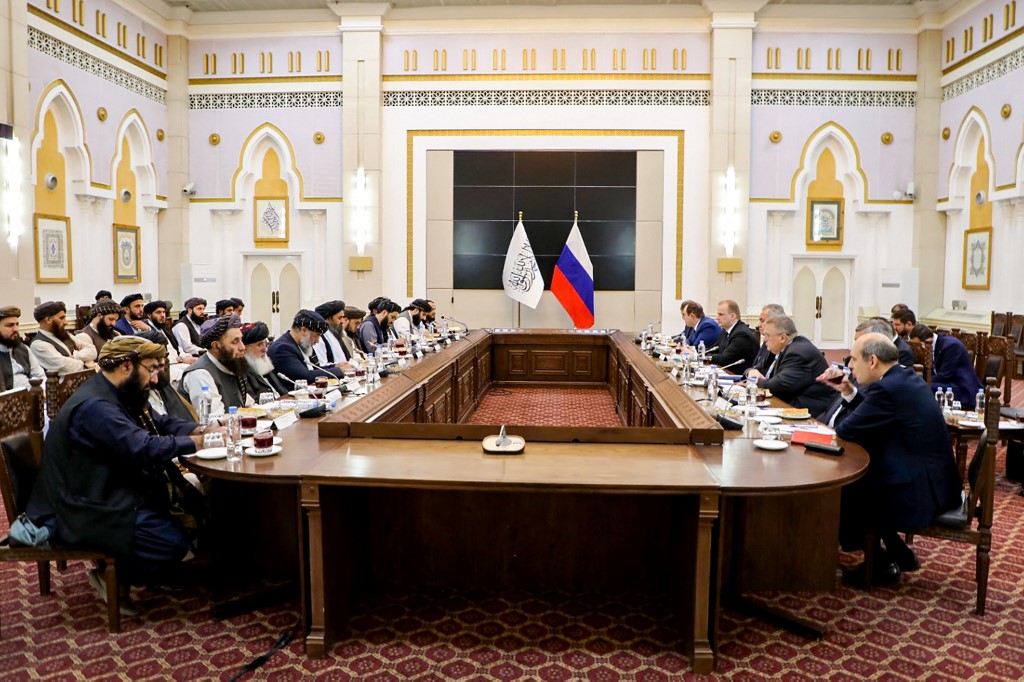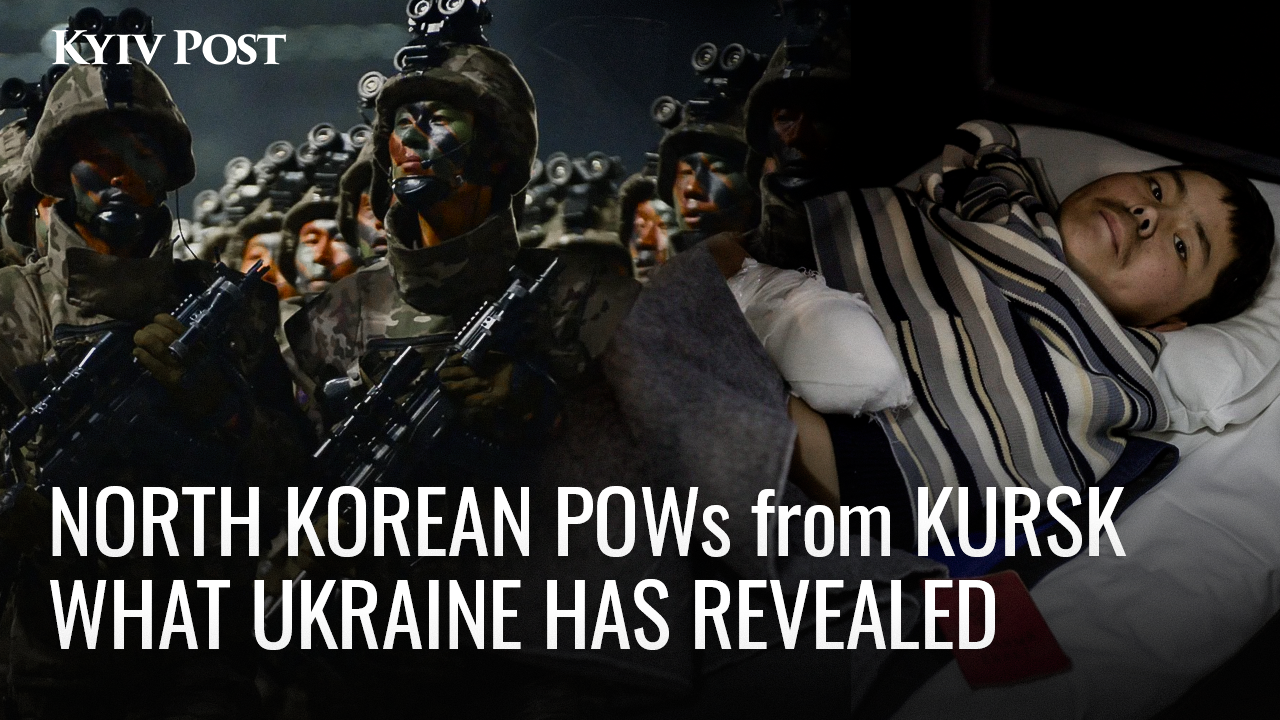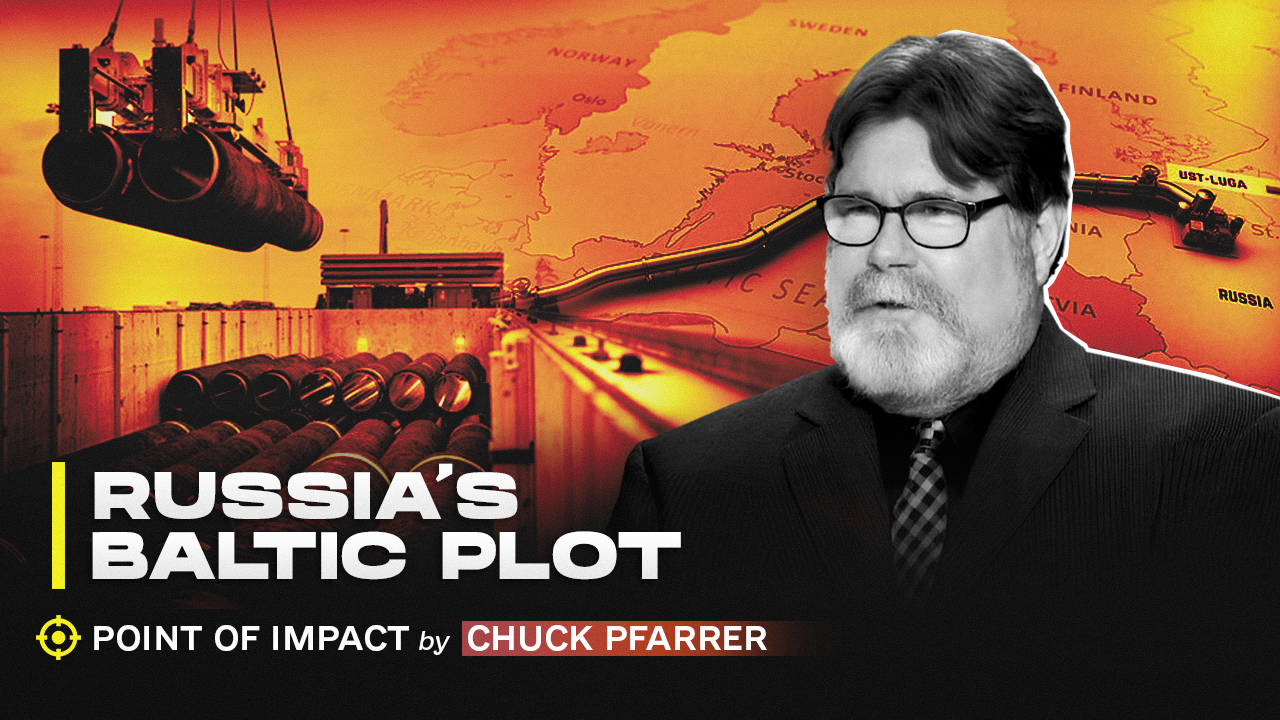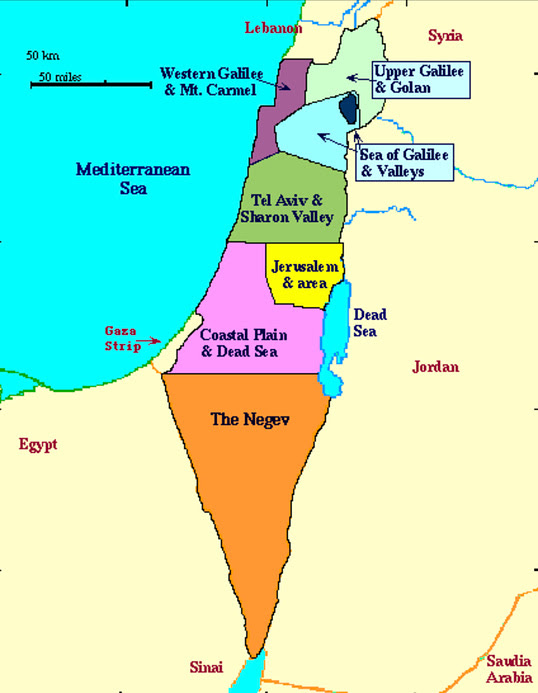President Joe Biden went to Israel and threaded the needle.
He repeated America’s full-throated support for Israel, sympathized with Gaza’s civilians, and acknowledged Israel’s rage and sorrow.
JOIN US ON TELEGRAM
Follow our coverage of the war on the @Kyivpost_official.
But he also warned Israeli leaders against repeating the mistakes America made after its 9/11 terrorist attack.
“I caution this. While you feel that rage, don't be consumed by it. After 9/11, we were enraged in the United States. While we sought justice and got justice we also made mistakes,” he said.
The United States invaded Iraq and Afghanistan, then became mired in two occupations. Instability followed. Iraq clings to democracy and still fights low-level terrorist insurgencies.
Syria was weakened, divided, and obliterated by its dictator, causing the flight of 6.7 million Syrians to Europe and refugee camps.
The Afghanistan invasion ended two decades later and the Taliban, ousted for hosting Osama bin Laden, are back in power.
But Biden’s main mission was humanitarian.
“The vast majority of Palestinians are not Hamas and the US unequivocally stands for protection of civilian life during conflict.”
In private meetings, he was able to “force” Israel to allow limited quantities of aid into Gaza from Egypt.
Biden’s trek across the Atlantic was courageous and provided a rare glimpse of moral leadership and modesty. It was neither posturing nor saber-rattling despite the fact that Biden is the most powerful leader, economically and militarily, in the history of the world.

‘I Was Saved by God to Make America Great Again’ – Trump Launches Retaliation Tour and Far-Right Agenda at Inauguration
His remarks were moving, but didn’t move the dial toward peace.
However, he distanced America somewhat from Israel’s aggression against Palestinian civilians and warned Netanyahu about the hazards ahead.
But a source said that Israeli Minister Benny Gantz, who outpolls Netanyahu significantly, acknowledged in a private meeting that a planned invasion and occupation “could take years.”
On Oct. 19, Britain’s Prime Minister Rishi Sunak arrived and will also urge caution, convey concern about the carnage, and push for aid.
Biden’s trip was high-risk, not just politically, but personally.
Hours before he left, Hamas ignited protests across the region by claiming that Israel had purposely bombed a hospital in Gaza on Oct.17, killing 500. The “Arab Street” exploded, requiring beefed-up security around the President’s visit.
Tel Aviv responded that the cause of the blast was an errant rocket fired by terrorist organization, Islamic Jihad, that was aimed for Israel. The Pentagon supported this explanation and is why Biden accepted Israel’s denial and went to Israel despite concerns for his safety.
Since then, there has been a media scramble to verify the facts around the hospital explosion. The Wall Street Journal claimed it was a “false flag” hoax by the terrorists while Al Jazeera, supported by Qatar, muted its coverage and carried opinion pieces accusing Israel of a cover-up. Le Monde reported that there was uncertainty as to the cause of the explosion.
“At first the media took Hamas at its word: 500 dead from an Israeli strike,” wrote The Wall Street Journal on Oct. 18.
“The BBC explained on air that the Israelis `said they are investigating, but it is hard to see what else this could be, really, given the size of the explosion, other than an Israeli airstrike, or several airstrikes.’..It’s headlines have since changed.”
But the publicity succeeded in cutting Biden’s visit short. Arab leaders from Jordan, the West Bank, and Egypt cancelled their planned summit due to the large protests generated by inflammatory coverage.
Unfortunately, truth in war is always a victim and often irrelevant.
In the Arab world, Israel is considered guilty until proven innocent even though it was victimized on Oct. 7. But now its retaliation, and prime minister’s rhetoric, have been brutal, resulting in deaths, destruction, and displacement and an international outcry.
As this nightmare continues, fake news and false narratives will proliferate and are powerful weapons in the arsenal of modern warfare.
Naturally, the usual suspects – Russia, Iran, and China – have lined up against Israel and, indirectly, the United States and the West.
Tehran threatens attacks against Israel if the war spreads into Lebanon which, by the way, Iran’s terrorist proxies are aiming to pull off.
Beijing condemned Israel’s actions against civilians as overreach, but carefully avoids denouncing Hamas for its atrocities.
“China is looking to score points with the Arab countries,” said a professor at Tamkang University in Taiwan in an interview. Its punch-pulling may also be due to the fact that Beijing recently inked a three-way and lucrative trade deal with Saudi Arabia and Iran.
It’s also important to highlight that Iran and Russia are allies in this mayhem.
The two helped ruin Syria, and currently conspire to destroy Ukraine (and Europe) too.
In the Middle East, Putin has meticulously cultivated a close relationship with Israeli Prime Minister Benjamin Netanyahu, not just because many Russian oligarchs live and hide their money in Israel these days.
This relationship with Netanyahu has convinced Israel not to help Ukraine militarily as well as to refuse to condemn Russia’s invasion of Ukraine. Last week, Netanyahu even refused an offer by Ukraine’s President Volodymyr Zelensky to come to Israel to show Ukraine’s solidarity with Israel in its fight against terrorism.
Iran’s Hamas attack on Oct. 7 has shaken up geopolitics. It was designed to sabotage a deal between Israel, the US, and Saudi Arabia that would have normalized relations with Israel and financially supported Palestinians. In return, the Kingdom was to receive security guarantees from the United States to protect it from Iran. But the deal is now off the table.
The Global South is also a target and protests there now criticize Israel and demand aid for Gaza’s civilians. South Africa and Brazil are on the Iran-Russia side, but India has stuck with Israel and the West.
Israel’s neighbors are the most rattled and should be.
Jordan and Egypt have pre-emptively stated they will refuse to accept any more Palestinian refugees, amid fears that the Israeli invasion will drive hundreds of thousands of Palestinians into their societies, along with terrorists.
Cairo has even stated that a preliminary plan by some in the Israeli government to temporarily relocate one million Gazans to Egypt’s Sinai is a non-starter. Egyptians suggest that any relocation should be to the Negev, Israel’s desolate southern region.
Egypt suggests the empty Negev, not its Sinai, be populated with Palestinian refugee camps and Egypt suggests the empty Negev, not its Sinai, be populated with Palestinian refugee camps and the Middle East roils again. Iran is malevolent and ambitious. Israel’s future is in the hands of a radical Netanyahu regime. Palestinians are captive to a terrorist government in Gaza that uses them as pawns and human shields, and those in the West Bank are beholden to a government that is ineffective and bullied by extremist Israeli settlers who steal their land despite international condemnation. Corruption has also plagued their cause, starting with the late Yasser Arafat, who allegedly stole $1 billion earmarked for the Palestinian people years ago.
The late Yasser Arafat and current PA leader still in charge Mahmoud Abbas. Jewish Journal
The reality is that the Arab world struggles. Lebanon is essentially a failed state, Iraq is weak, Syria is controlled by the Butcher of Damascus, Iran (not an Arab country but anti-Arab) is a rabid theocracy, and the region’s wealthiest Arabs remain mostly aloof, snugly safe in the bosom of U.S. military protection without strings attached.
But this time the Gulf states must step up, given their obscene wealth: The GDP of the rest of the Middle East is less than the combined GDP of the six members of the Gulf Cooperation Council, led by the Kingdom of Saudi Arabia.
Their population of 65 million generates a collective GDP of $3.65 trillion, the ninth highest in the world, and more than double Russia’s and ten times’ Iran’s.
Further, Israel must clean up its act, wrote an Israeli historian Gershom Gorenberg in The New York Times on Oct. 18.
“Who allowed this to happen? We must demand a national accounting for what made the military disaster possible: The hubris and complacency and, most of all, the delusions of Prime Minister Benjamin Netanyahu and his government…He has been prime minister for 13 of the past 14 years. His latest government came to power just over nine months ago. It’s the most extreme he has led, because only extreme parties were willing to join a coalition with a prime minister on trial for corruption. His own Likud has become a party of lackeys; experienced politicians critical of him abandoned it. His pre-war agenda was to funnel money to ultra-Orthodox schools, to support settlers illegally building on West Bank land, and pushing through radical changes to the judicial system that would [shield him from corruption indictments] and his right-wing’s hold on power,” he wrote.
Netanyahu opposed a two-state solution by dividing Gaza and West Bank leadership.
This week, Biden politely exerted “soft power” with his timely trip, but the stakes rise.
Reckless behavior in Tel Aviv, accompanied by anti-Arab rhetoric, endangers Israel and its allies.
A prolonged invasion and occupation, bogged down in guerrilla warfare, will be ruinous and divert attention and funds away from the Palestinian plight as well as Ukraine’s struggle to defeat the most dangerous regime in the world in Moscow.
It will also keep oil prices high, financing predations by Iran and Russian in future, and will increase inflation for consuming nations.
Finally, more “false flag” fabrications will surface. Governments and media must be alert to such hazards because these are designed to foment unrest and manipulate public opinion.
A regional summit is essential and Egypt and Saudi Arabia must spearhead the effort to bring about a ceasefire and find a two-state solution to address the Palestinian crisis.
The only conclusion from the recent turmoil is that the world’s most dangerous neighborhood just got a whole lot more dangerous.
The views expressed in this opinion article are the author’s and not necessarily those of Kyiv Post.
Reprinted from [email protected] - Diane Francis on America and the World
See the original here.
You can also highlight the text and press Ctrl + Enter



